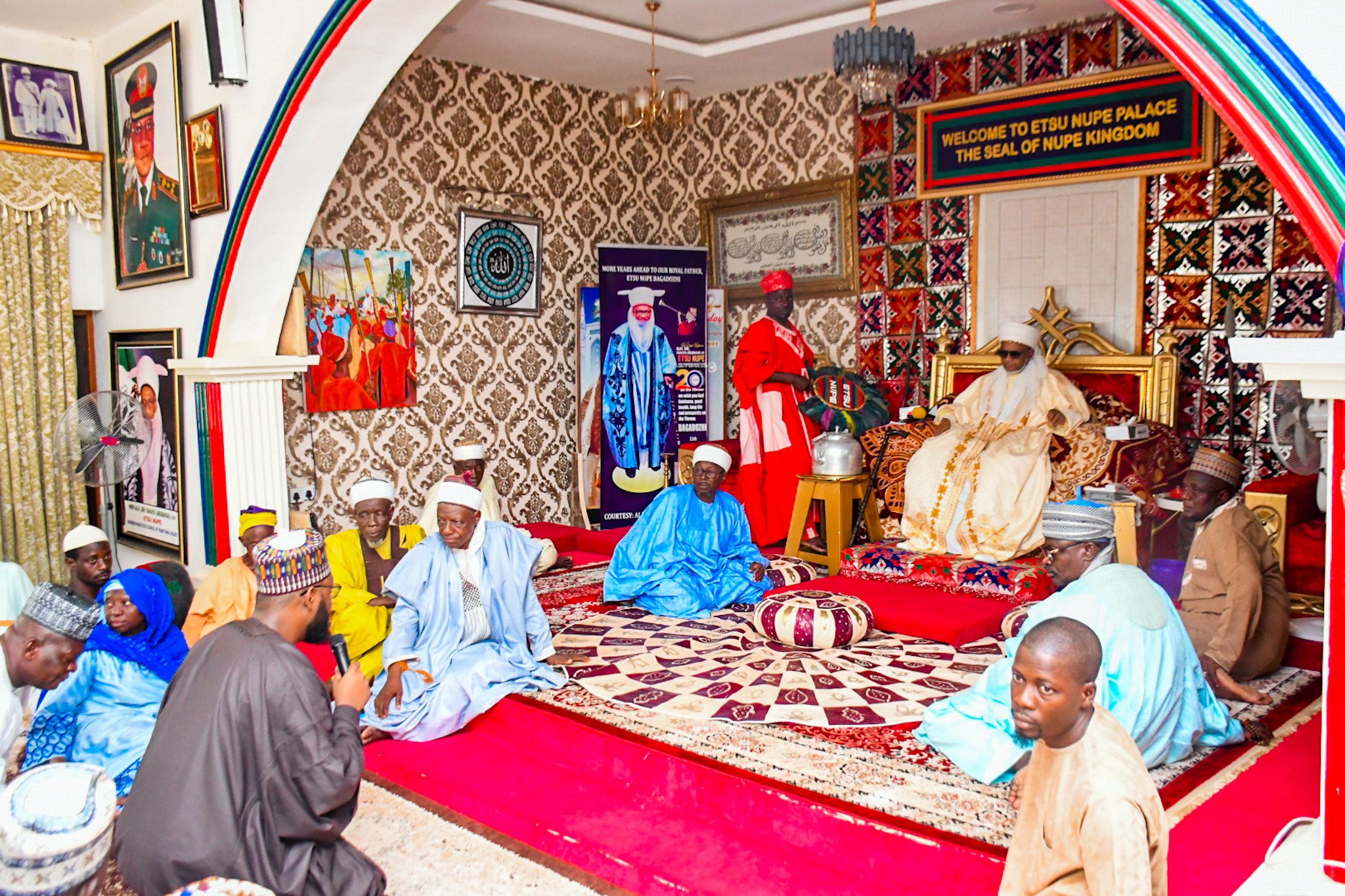
The Bida Emirate is a prominent traditional state in Nigeria, with its headquarters in the city of Bida, Niger State. It is the successor to the ancient Nupe Kingdom and holds significant cultural, historical, and traditional importance for the Nupe people.
History and Origins
The Nupe Kingdom, from which the Bida Emirate evolved, was established in the middle of the 15th century in the basin between the Niger and Kaduna rivers. Early Nupe history is largely based on oral traditions. King Jibiri, who reigned around 1770, is noted as the first Nupe king to embrace Islam. The kingdom reached a peak of power under Etsu Ma'azu, who died in 1818.
The 19th century brought significant changes with the rise of the Fulani Empire. Following Ma'azu's death and a period of succession wars, the Nupe Kingdom fell under the influence of the Gwandu Emirate, part of the larger Sokoto Caliphate.
The Bida Emirate itself was formally established in 1857 under Fulani hegemony, though the emirate had existed with Rabba as its capital earlier. **Usman Zaki dan Malam Dendo**, a son of the Fulani leader Mallam Dendo and a Nupe mother, was a key figure in this transition. He proclaimed himself Etsu Nupe in 1835. After a period of conflict, including the Nupe civil war (1847–1856) at Bida, Bida was established as the new capital, replacing Rabba.
The Bida Emirate, particularly under the second reign of **Masaba dan Malam Dendo** (1859-1873), grew into a powerful military and economic force, expanding its territory. During this period, significant structures like Bida's royal palaces, the night market, and the central mosque were constructed.
The late 19th century saw increasing interaction with the British Royal Niger Company. Disputes over trade and slave dealing ultimately led to a British campaign against Nupe, resulting in the defeat of the Fulani army at Bida in 1897. Bida became subject to British colonial rule in 1901 and was incorporated into the newly created Niger Province in 1908. Under British rule, the Nupe Emirate officially became known as the Bida Emirate.
Ruling Houses
To prevent conflicts over succession, a system of three ruling houses was established in Bida, ensuring a systematic rotation of leadership. These ruling houses are:
- Usman Zaki
- Masaba
- Umaru Majigi
Descendants from these three houses have succeeded one another in occupying the throne of the Etsu Nupe.
Prominent Rulers (Etsu Nupe)
The head of the Bida Emirate is the Etsu Nupe, who is considered the paramount leader of the Nupe people worldwide. Some notable Etsu Nupe include:
- Tsoede (Edegi or Choede): The legendary founder of the Nupe Kingdom in the 15th century.
- King Jibiri: The first Nupe king to become Muslim, around 1770.
- Etsu Ma'azu: A powerful ruler who brought the Nupe Kingdom to a period of great influence before his death in 1818.
- Usman Zaki dan Malam Dendo: (First reign: 1835-1841; Second reign: 1856-1859) A pivotal figure in the establishment of the Bida Emirate and the move of the capital to Bida.
- Masaba dan Malam Dendo: (First reign: 1841-1847; Second reign: 1859-1873) Known for expanding the emirate's power and overseeing significant construction.
- Umaru Majigi dan Muhamman Majigi: (1873-1884)
- Umaru Sanda Ndayako: (January 1975 - September 1, 2003) A highly respected Etsu Nupe before the current monarch.
- His Royal Highness, Alhaji (Dr.) Yahaya Abubakar CFR: (September 11, 2003 - Present) The 13th Etsu Nupe, and the current Chairman of the Niger State Council of Traditional Rulers. His reign has seen a focus on peace, cultural preservation, and community development.
Current Status and Influence
Today, the Bida Emirate remains a significant traditional institution in Nigeria. Its influence extends beyond Bida, as the Etsu Nupe is recognized as the spiritual and cultural head of all Nupe people, including those residing in Kwara, Kogi, and other states.
The Etsu Nupe, Alhaji (Dr.) Yahaya Abubakar, holds a prominent position within Nigeria's traditional hierarchy, serving as the Chairman of the Niger State Council of Traditional Rulers and the Coordinating Committee of the National Council of Traditional Rulers of Nigeria.
The Emirate continues to play vital roles in:
- Cultural Preservation: Promoting Nupe language, customs, and traditions through festivals, cultural centers, and educational initiatives.
- Community Cohesion: Fostering peace, unity, and conflict resolution among various communities within its domain.
- Development Advocacy: Working with the government and other stakeholders to bring development to the Nupe land, particularly in areas like education, agriculture, and healthcare.
- Security: Assisting government security agencies with local intelligence and community mobilization for peace.
Bida town itself is known for its vibrant crafts, including brass and copper work, glass beads, and traditional weaving. It also serves as an important agricultural hub, especially for swamp rice cultivation.
While traditional rulers in Nigeria have a largely ceremonial role within the modern political structure, their influence on social affairs, cultural identity, and community development remains profound, and the Bida Emirate exemplifies this continued relevance.